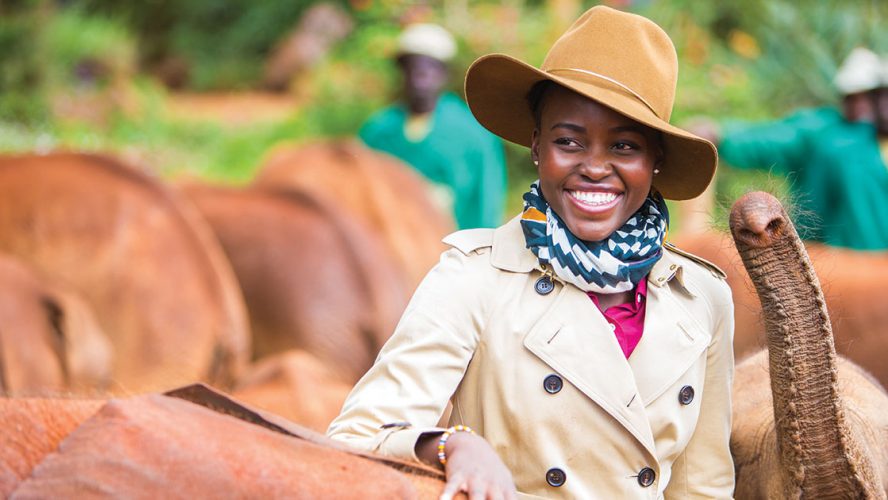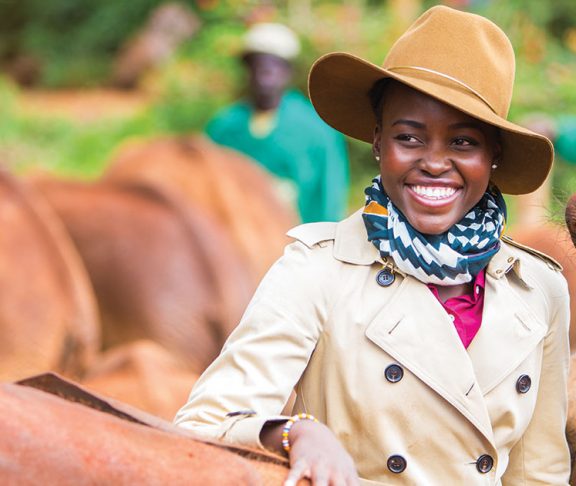For over 40 years, researchers studying the elephants of Kenya’s magnificent Amboseli National Park have identified different families by assigning each a letter of the alphabet, with mothers and offspring alike generally named accordingly. Annabel, Agatha and Amelia belong to the “A” family, and so on.
Dozens of these families documented by the Amboseli Elephant Research Project roam in and around the park, one of the increasingly few places in Africa where elephants have been relatively protected from the rampant poaching that on average claims the lives of nearly 100 elephants a day.
Bigger, happier family
One Amboseli family has a special, recent addition—a plucky year-old calf named Lupita. She is, of course, named for actress Lupita Nyong’o, whose stirring performance in “12 Years a Slave” earned her an Academy Award in 2014.
By chance, Nyong’o observed her namesake baby elephant on a recent trip through her native Kenya with WildAid, which works to end the illegal wildlife trade by persuading consumers not to buy ivory and other products. “She followed her mother closely and gave out a loud trumpet when she wouldn’t stop to breastfeed,” Nyong’o recalled during a keynote address at a June event in Nairobi. “Lupita was being stubborn—that made me proud. I like a girl who knows what she wants.”
Threats from every side
The international commercial ivory trade has been banned for a quarter-century. But ivory’s allure hasn’t faded. Growing affluence in China has created a new class of ivory consumers, and a “one-off” sale of African ivory stockpiles to China in 2008 both elevated demand and provided a smokescreen for the illegal trade of ivory from recently poached elephants to flourish. The ivory trade persists elsewhere too—even in the United States, widely considered the world’s second-largest market.
Across Africa, an estimated 33,000 elephants are killed annually for their ivory, with militant groups and international criminal syndicates profiting from the trade. That’s why Nyong’o is speaking out for Kenya’s natural heritage, of which elephants are a crown jewel.
A face for the cause
As a global elephant ambassador, Nyong’o will appear in public service announcements and print campaigns to be distributed internationally, from East Africa to East Asia and the U.S. Some of these campaign messages will feature another stop on Nyong’o’s recent journey: The David Sheldrick Wildlife Trust’s Nairobi elephant orphanage, where she had a once-in-a-lifetime opportunity to bottle-feed an eager orphan.
“It is time to ban sales of ivory worldwide,” Nyong’o said, “and to consign the tragedy of the ivory trade to history.”

